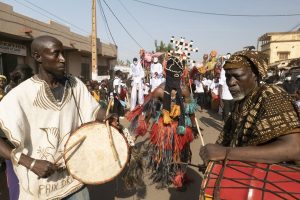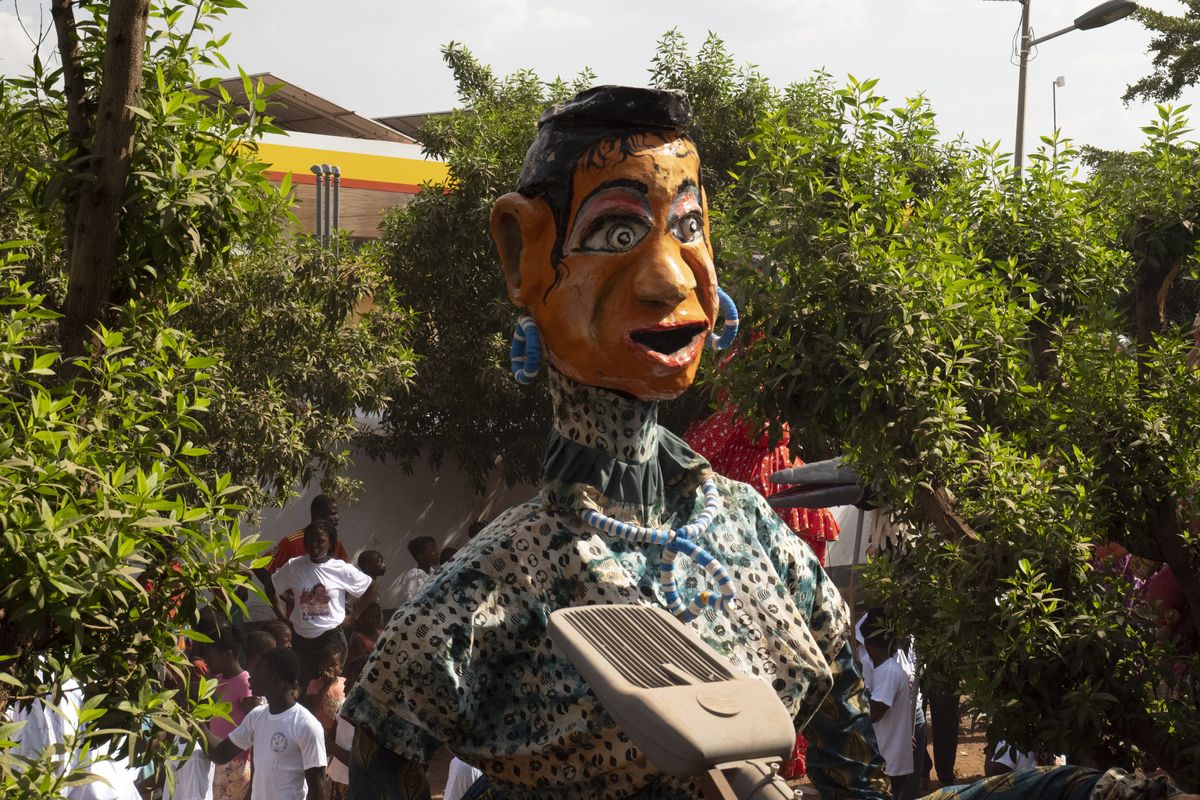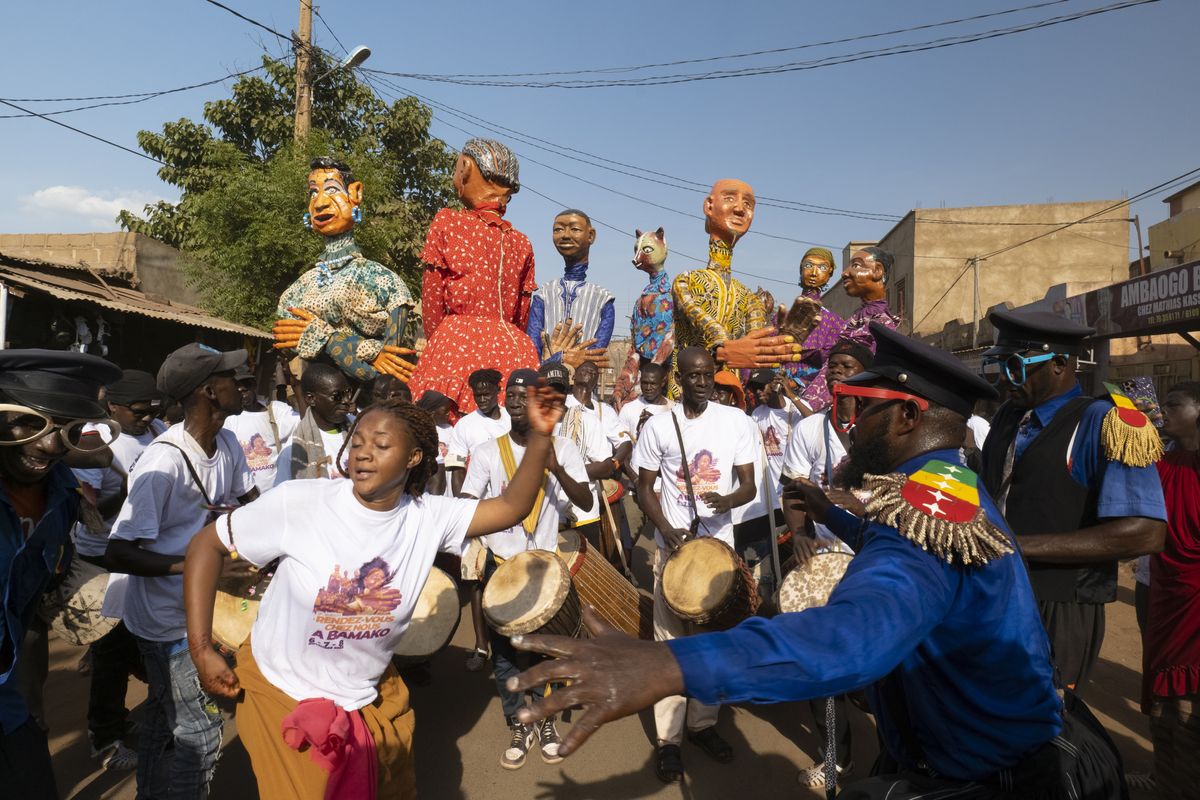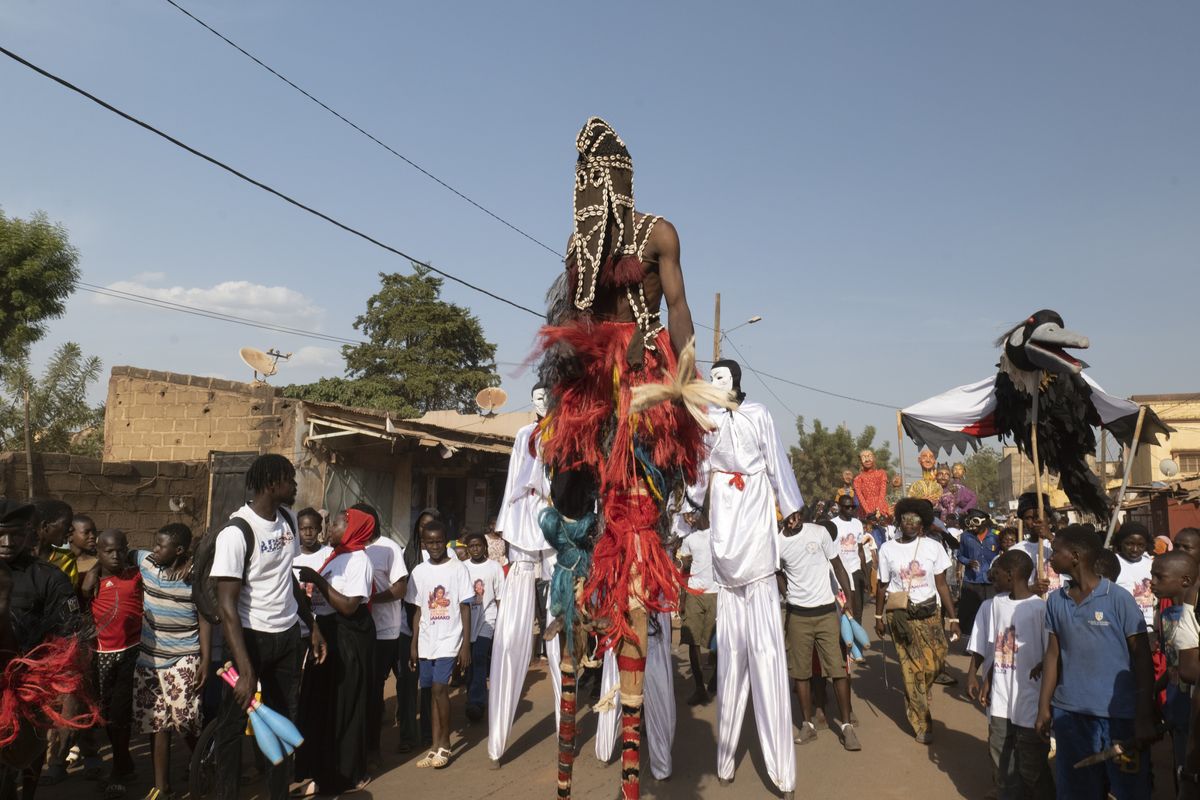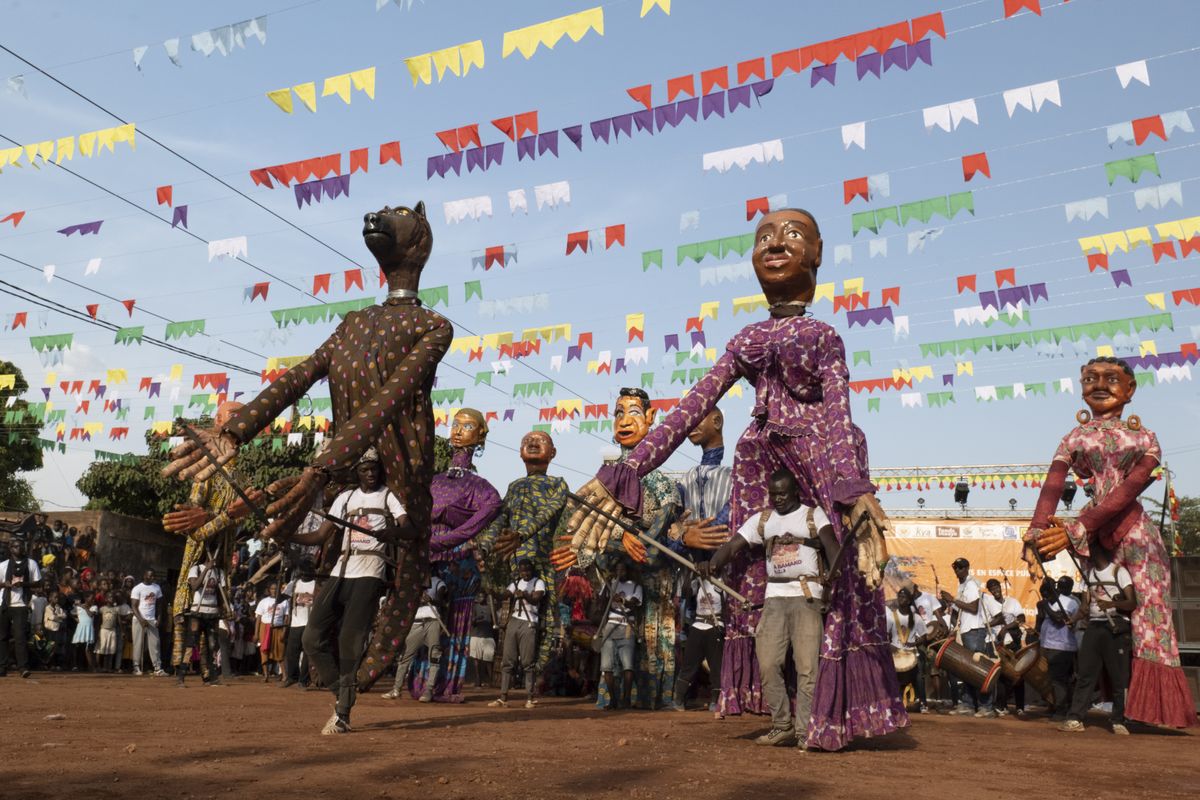BAMAKO, Mali (AP) — In a residential neighborhood in Mali’s capital, a parade of giant marionettes marched through the streets as motorcycles and taxis squeezed through the busy road, stopping at intervals to give way for the puppets.
Rendez-Vous Chez Nous, which translates to “come to us” or “meet at our place” in French, was a three-day festival organized by the Nama marionette and dance group. The ninth annual edition of the event, held in Bamako Nov. 6-8, featured dance performances, concerts and plays.
But the spectacle of colors, raucous music and merriment belied the fear that Bamako residents have lived with in recent weeks. The city of more than 3 million people is being squeezed by al-Qaida-backed jihadi militants who have imposed a monthslong blockade on fuel imports into the landlocked country, resulting in severe shortages and panic.
Authorities had to temporarily close schools and several embassies have asked their citizens to leave the country during the blockade.
Despite the chaos, Malians celebrated the festival with joy.
“We are artists, we fight through our art,” said Yacouba Magassaouba, the festival director. “We are committed, and we will not abandon our activities because canceling this festival would mean that the jihadis have won.”
The West African nation is one of several in the Sahel region that have been battered by jihadi violence in the past decades and are now under military rule. Still, Mali has remained a favorite spot for celebrations of arts, culture and lifestyle.
Rendez-Vous Chez Nous seeks to show “our expertise and skills by drawing on our urban cultural heritage,” said Adama Traoré, a member of the organizing team and one of Mali’s most celebrated theater directors.
The parade included more than 200 puppets representing modern Malian women with striking features — eyes wide open, big earrings, trendy hairstyles and colorful attire. Thousands of onlookers gathered to cheer the procession.
There were also animal puppets like lions, horses and hyenas, a sign of bonding and cohabitation representing a theme of social cohesion.
Marionettes have long held cultural importance in Mali, where they are traditionally used to tell stories and pass on wisdom.
“Puppetry represents Malian culture, which is why we like to be associated with these kinds of initiatives,” said Patricia Gómez Lanzaco, an adviser to the Spanish embassy, which helped finance the festival.
Despite the ongoing threats from militants, the festival attracted young people and puppeteers from nations across the region including Ivory Coast, Burkina Faso, Guinea, Senegal, Ghana and Togo.
Kaleba Mouzou of Togo said he was inspired by the communal efforts that brought the puppets to life.
“Behind each puppet there is teamwork, with people specializing in reshaping the materials used, such as pipes, strings and fabric wraps, to make the puppets,” he said.
By BABA AHMED
Associated Press

